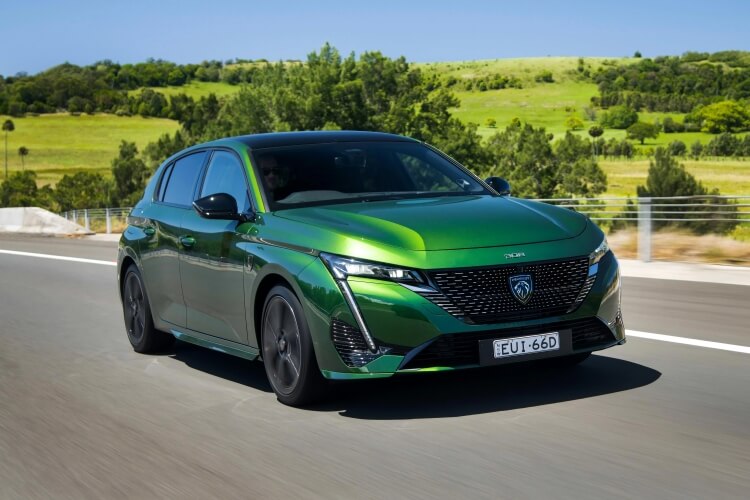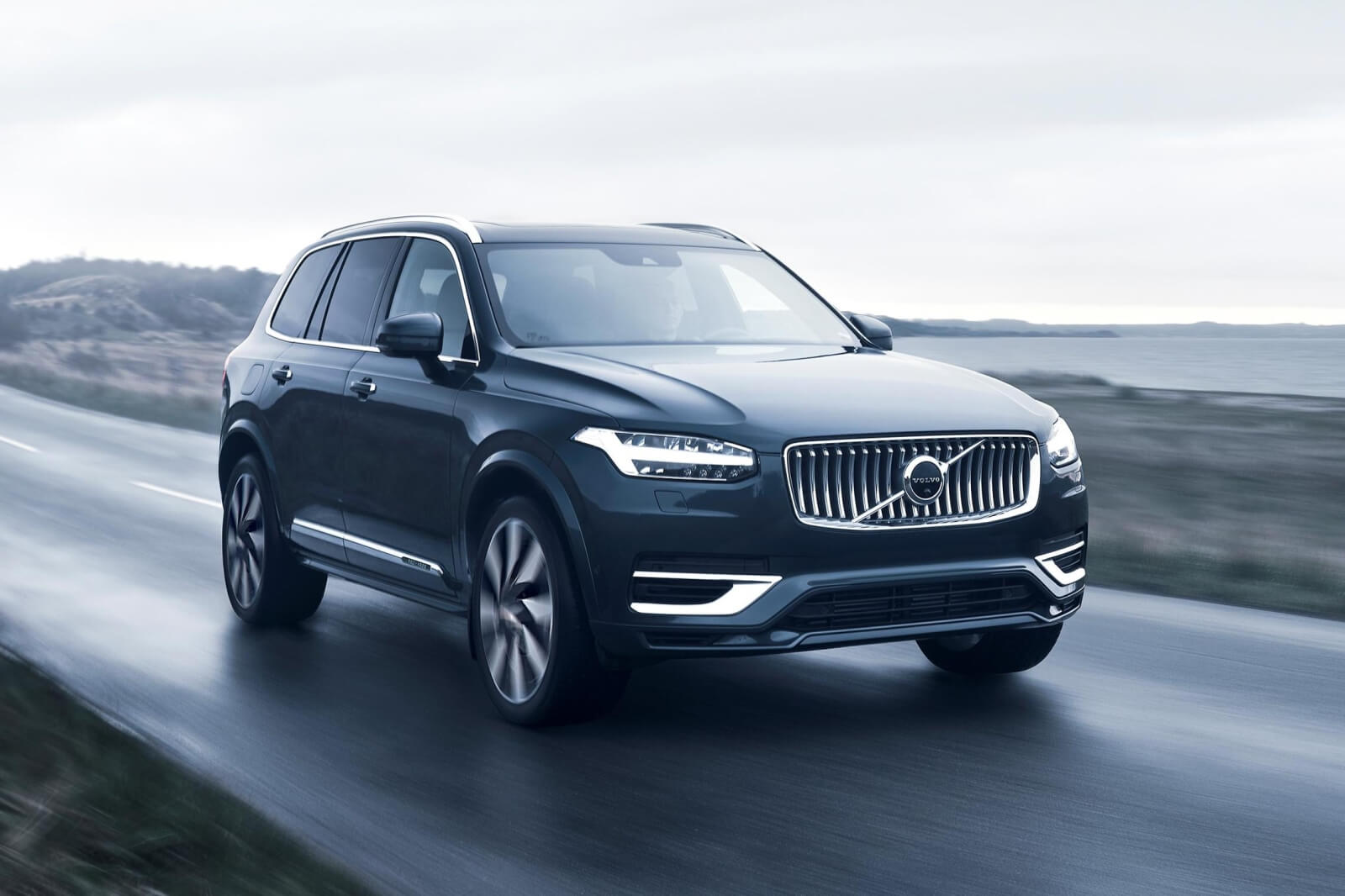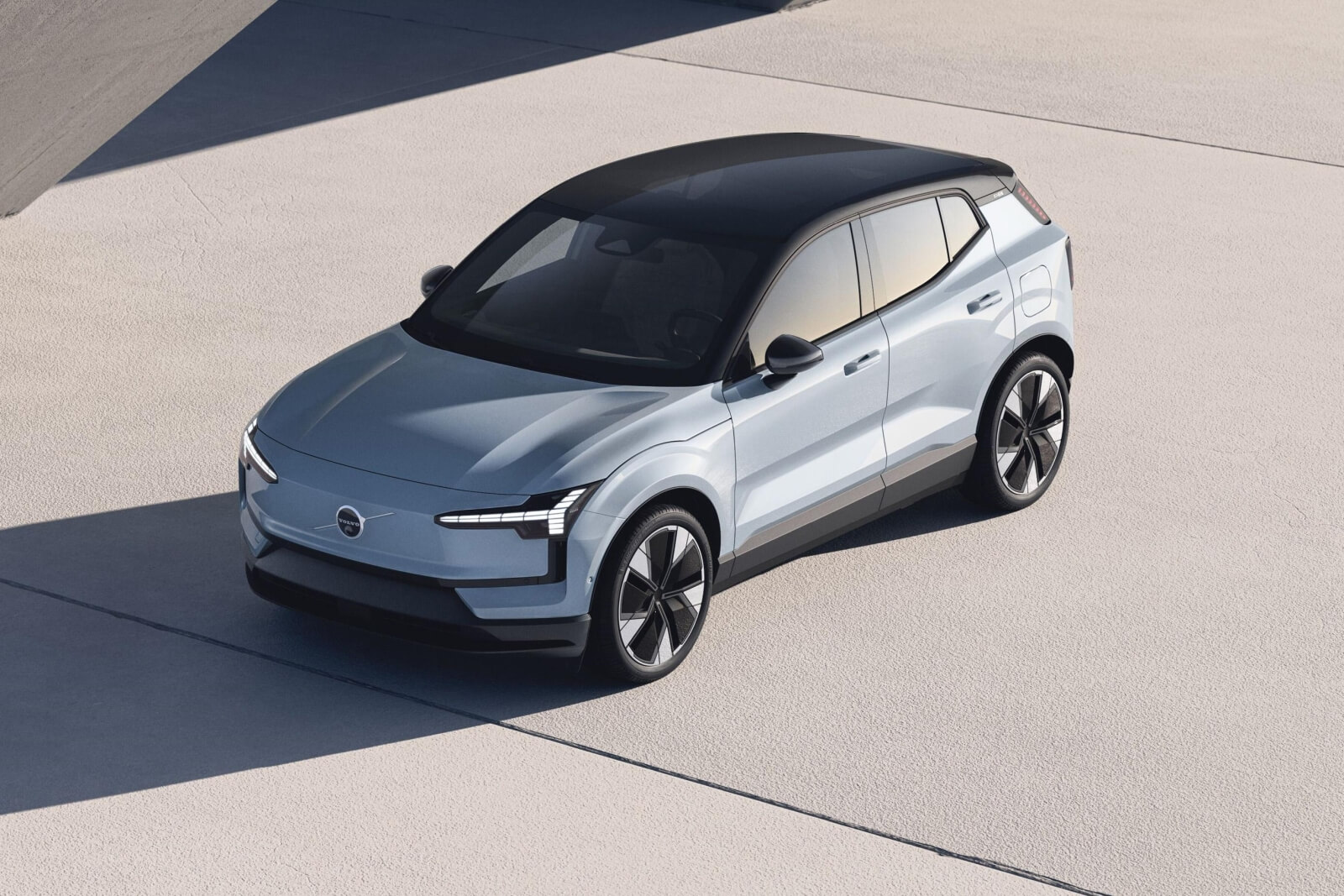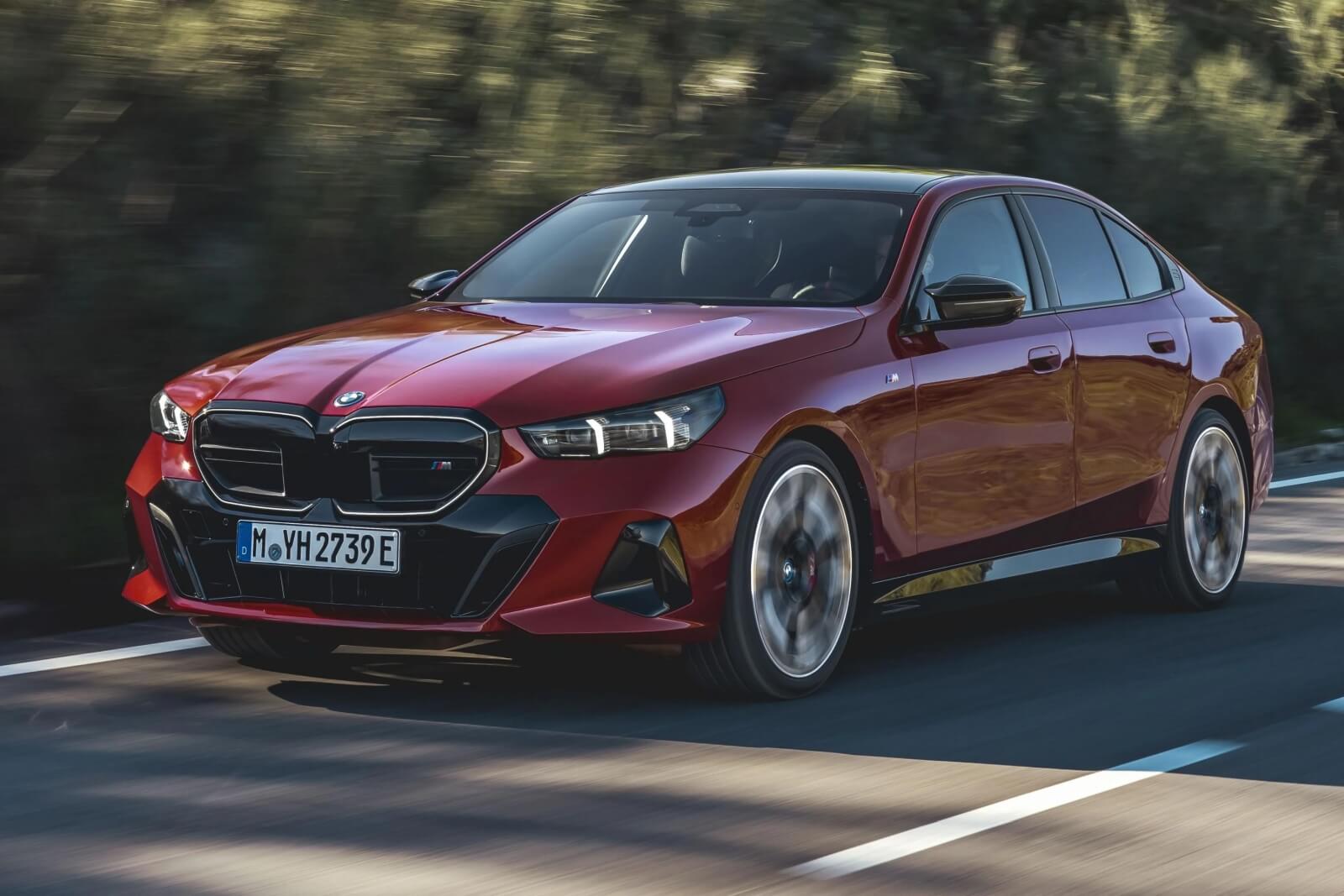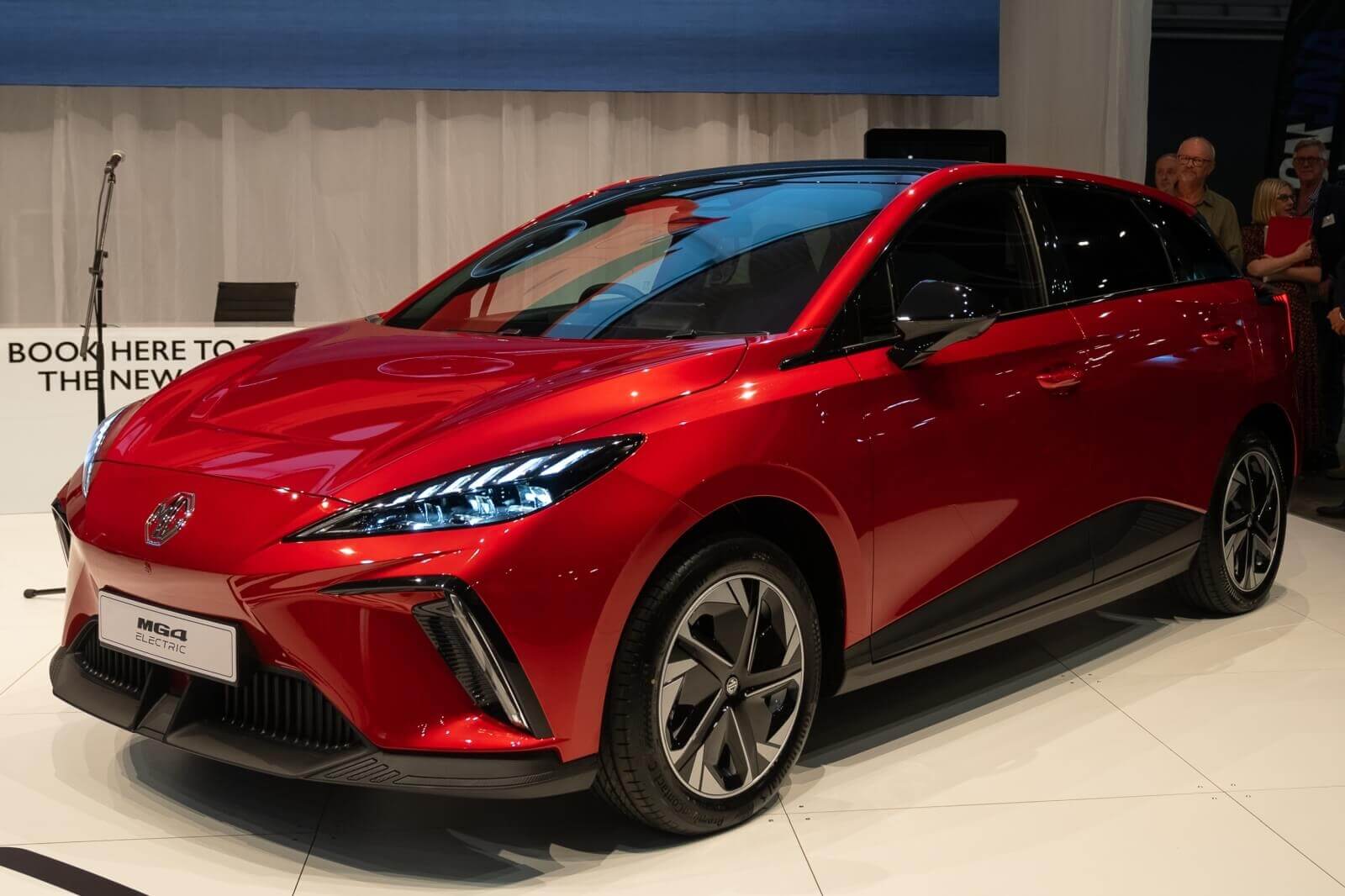As the new kingpin of the Peugeot 308 range in Australia, does the PHEV do enough to justify its $16,000 premium over the equivalent non-hybrid models?
Pros
- Attractive design
- Premium Interior
- Electric Range is a bonus
- Adequate safety systems
Cons
- Small boot space
- Premium price
- Driver ergonomics not ideal
- Four-star safety rating
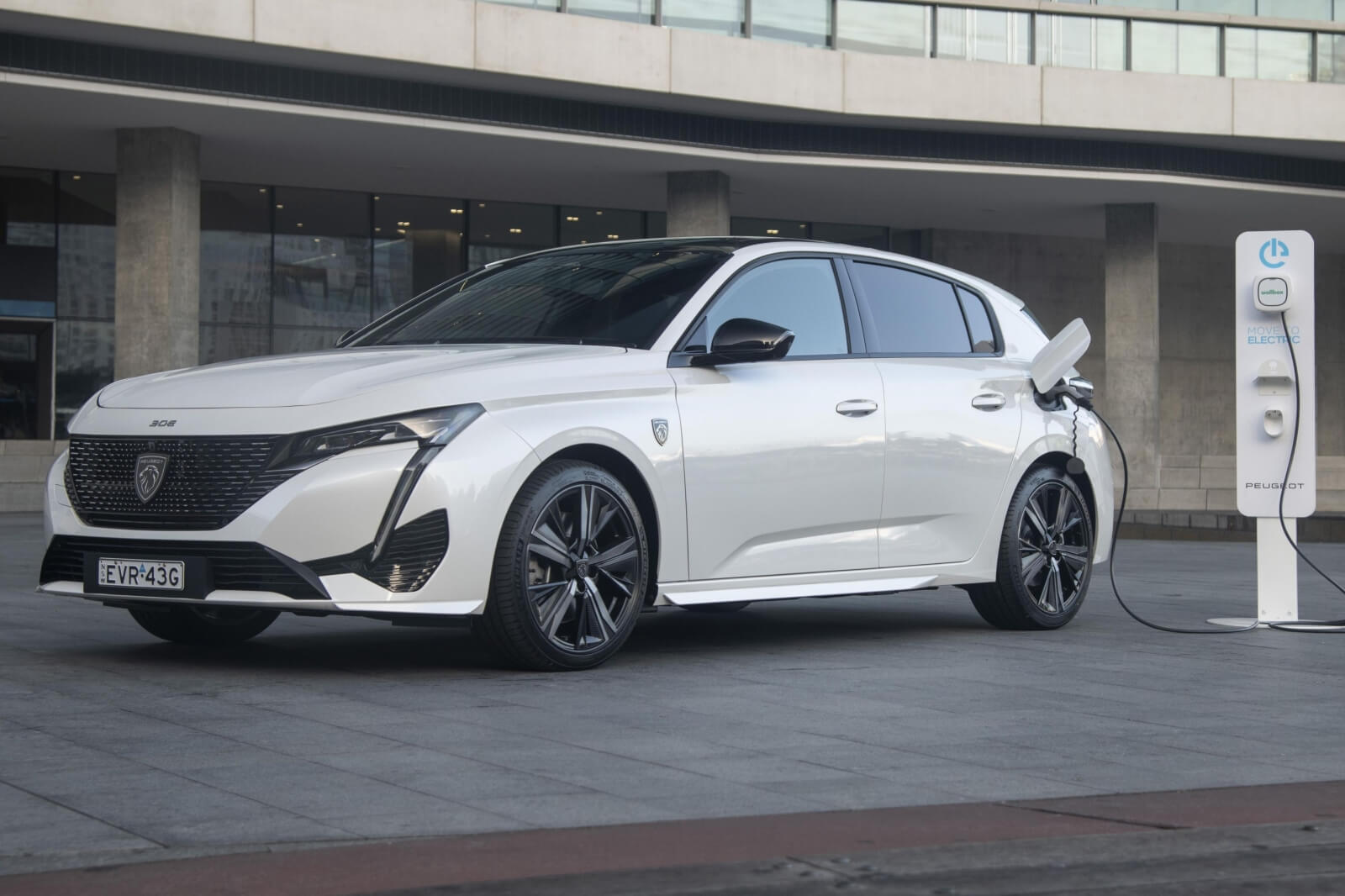
The new Peugeot 308 GT Sport Hatch Plug-in Hybrid is a significant addition to the French automaker's portfolio. It signifies Peugeot's commitment to environmentally-friendly, energy-efficient vehicles. As the first plug-in hybrid electric vehicle (PHEV) version of the brand’s small car to be offered in Australia, it can appeal to those who wish to transition towards electric mobility without fully embracing an all-electric vehicle yet.
However, the car's $64,990 (before on-road costs) price tag places it at the high end of the range, potentially placing it out of reach for some buyers. This bold pricing strategy might be risky for Peugeot, already considered a niche player in the Australian market. It's uncertain if this cost-intensive car will boost Peugeot’s sales significantly.
The 2023 Peugeot 308 PHEV model certainly generates interest due to its blend of traditional Peugeot design and new energy technology. It was showcased recently at a local launch in Sydney, attracting considerable attention. Future sales and customer reception will indicate whether this hybrid model will succeed in the Australian market and pave the way for more eco-conscious options from Peugeot.
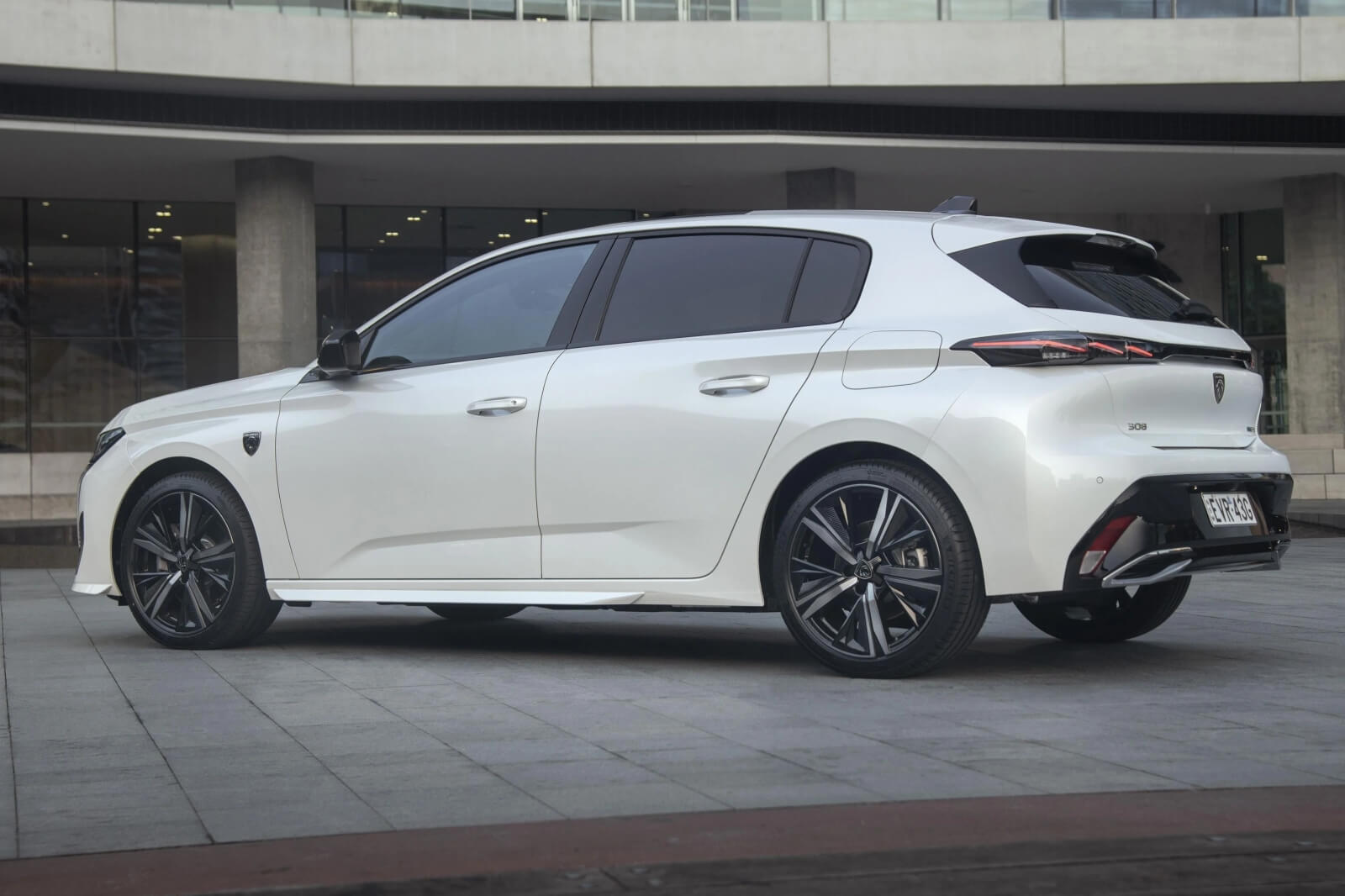
What are the prices for the Peugeot 308 PHEV?
2023 Peugeot 308 pricing:
2023 Peugeot 308 GT Hatch: $43,990
2023 Peugeot 308 GT Premium Hatch: $48,990
2023 Peugeot 308 GT Premium Wagon: $50,490
2023 Peugeot 308 GT Sport Plug-In Hybrid Hatch: $64,990
Prices exclude on-road costs
The price tag of the 308 is indeed on the high side. Peugeot has tacked on a $16,000 premium for this partial EV model compared to the next highest-spec 308 Hatch, and this seems like a substantial amount to pay for the privilege of driving on electricity for up to 60km at a time, as per WLTP testing.
Most of the standard features from the GT Premium are included here, with the addition of some hybrid badges on the car's exterior.
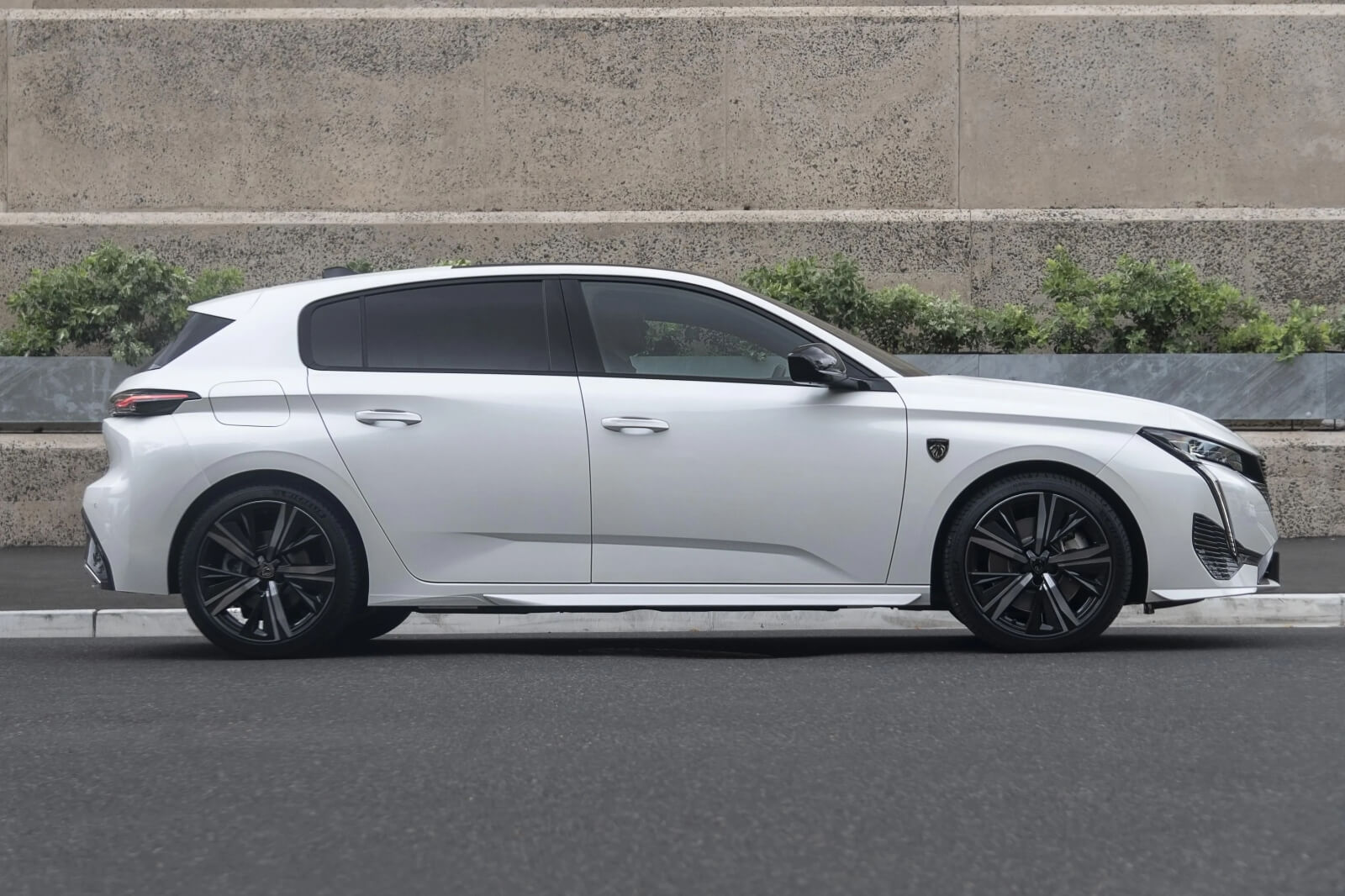
What’s under the bonnet?
The plug-in hybrid GT Sport comes with a turbocharged 1.6-litre four-cylinder petrol engine with 132kW of power, paired with an 81kW electric motor and eight-speed automatic transmission.
The transmission is an iteration of the Aisin-sourced EAT8 auto used in other Peugeot models, but with a clutch pack replacing the torque converter in the transmission. The car is strictly front-wheel drive.
The system outputs 165kW and 360Nm, which is significantly more than the petrol-only models, which feature a 1.2-litre turbo-triple delivering 96kW and 230Nm. To put it into numbers, the power increase is 72 per cent, and the torque increase is 56 per cent.
However, these numbers fall short of the Cupra Leon VZe’s 180kW and 400Nm. And if you're seeking performance, they aren't near what you'd find in a Golf R or Cupra Leon VZx, both of which offer over 220kW.
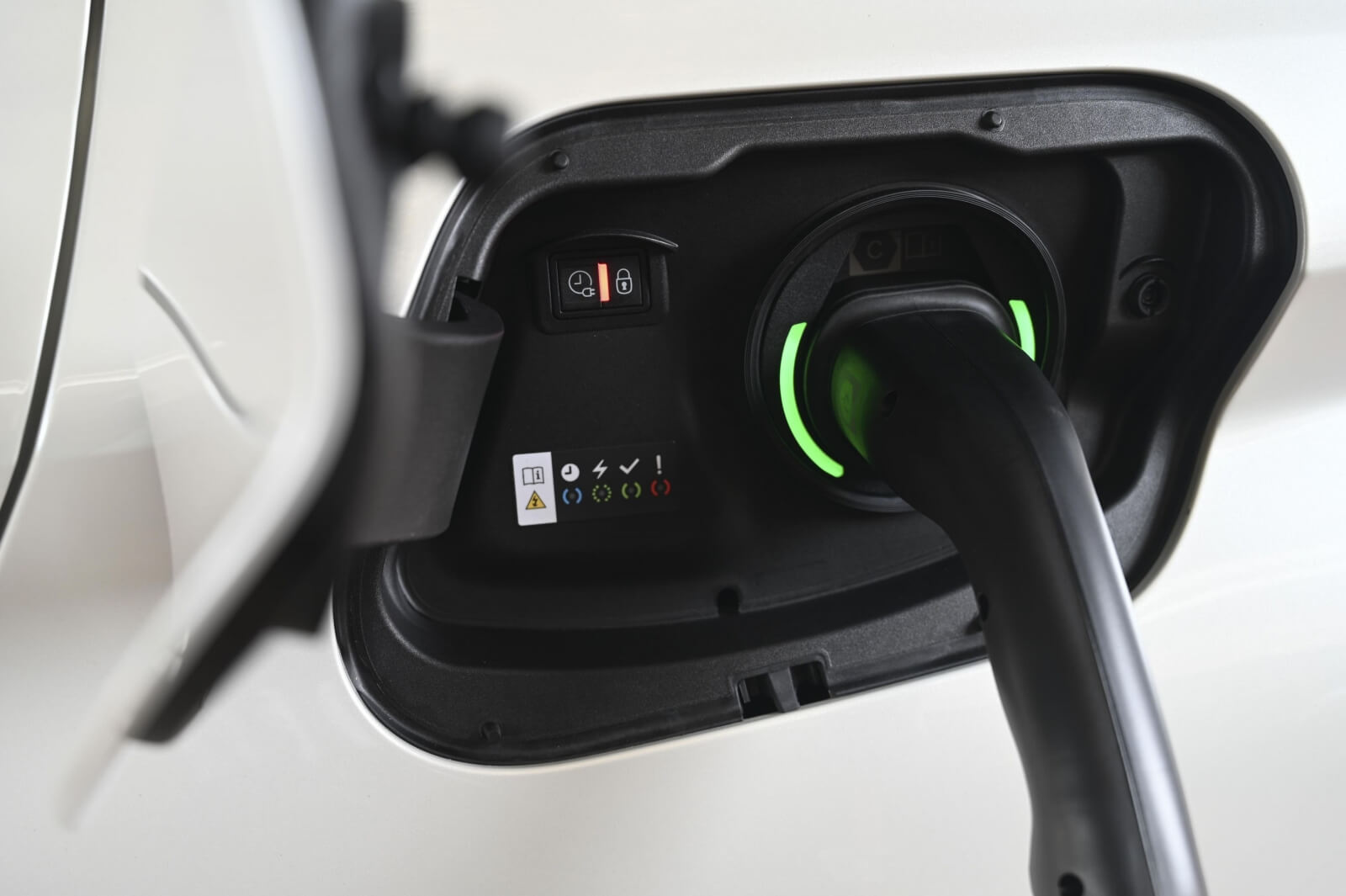
The 0-100km/h sprint time for the 308 PHEV is stated as 7.5 seconds, which is not particularly quick.
In terms of charging, the car has a maximum AC charging rate of 3.7kW. Therefore, even if you have a 7kW home wallbox charger, you will only be able to use about half its capacity.
Peugeot claims that the 12.4kWh lithium-ion battery can be recharged from 0-100 per cent in roughly 3.5 hours from a wallbox, or approximately 5.5 hours from a regular household plug. The car comes with a cable for this.
However, DC charging is not an option, as the charging plug on the car is a Mennekes plug (meaning it has the round AC part at the top but lacks the double-prong DC part at the bottom).

How does the Peugeot 308 PHEV drive?
Driving the 308 PHEV is a pleasing experience. The car is quiet and refined, but its performance is strong enough to give it a feel of a hot hatch, or at least a warm one.
The powertrain is shared with the larger 508 plug-in hybrid, consisting of a turbocharged 1.6-litre, four-cylinder petrol engine and a front-mounted electric motor. The result is a brisk 0-100km/h time of 7.5 seconds as quoted by Peugeot.
The car features Peugeot’s e-EAT8 automatic transmission, which is equipped with a wet, multi-plate clutch, replacing the conventional torque converter. Power is delivered to the front wheels.
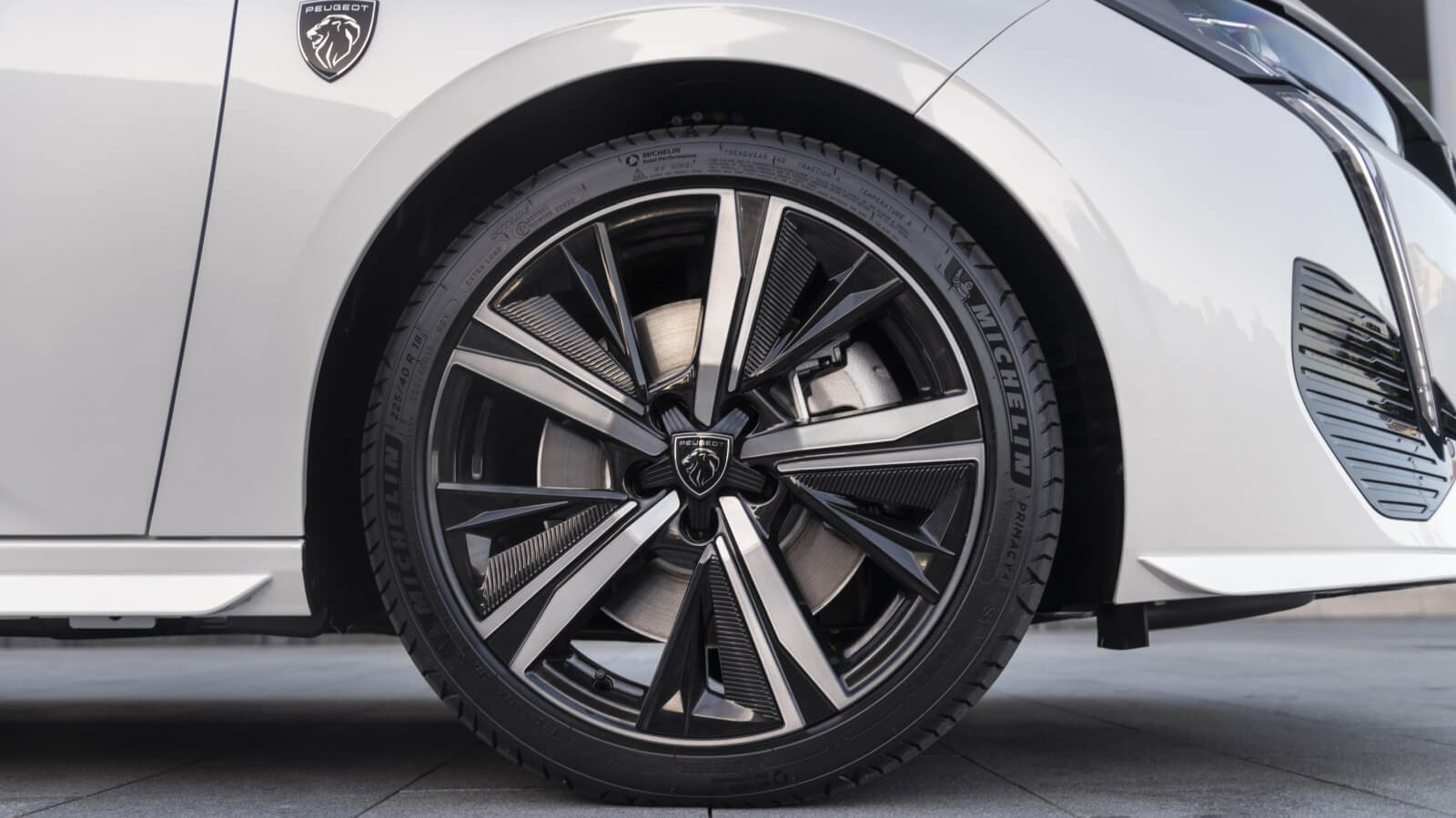
There are three drive modes – Electric, Hybrid, and Sport – each providing a different driving experience. Despite not matching the thrill of a Volkswagen Golf GTI, the instant torque from the 308’s electric motor ensures strong acceleration off the line, with the front tyres often struggling to find grip.
Each drive mode affects performance. Electric mode uses the stored charge in the 12.4kWh battery before resorting to petrol power. Hybrid mode is similar but prioritizes electric power during low-speed driving, with the engine joining in during heavy acceleration or at highway speeds. Sport mode results in sharper accelerator response, with the petrol engine assisting during heavy throttle applications, but the electric motor seems to handle most of the car’s propulsion.
However, the car's acceleration isn't as potent as what you'd experience in fully electric vehicles like the Tesla Model 3, but it does mimic the linear acceleration curve of a traditional ICE-powered vehicle.
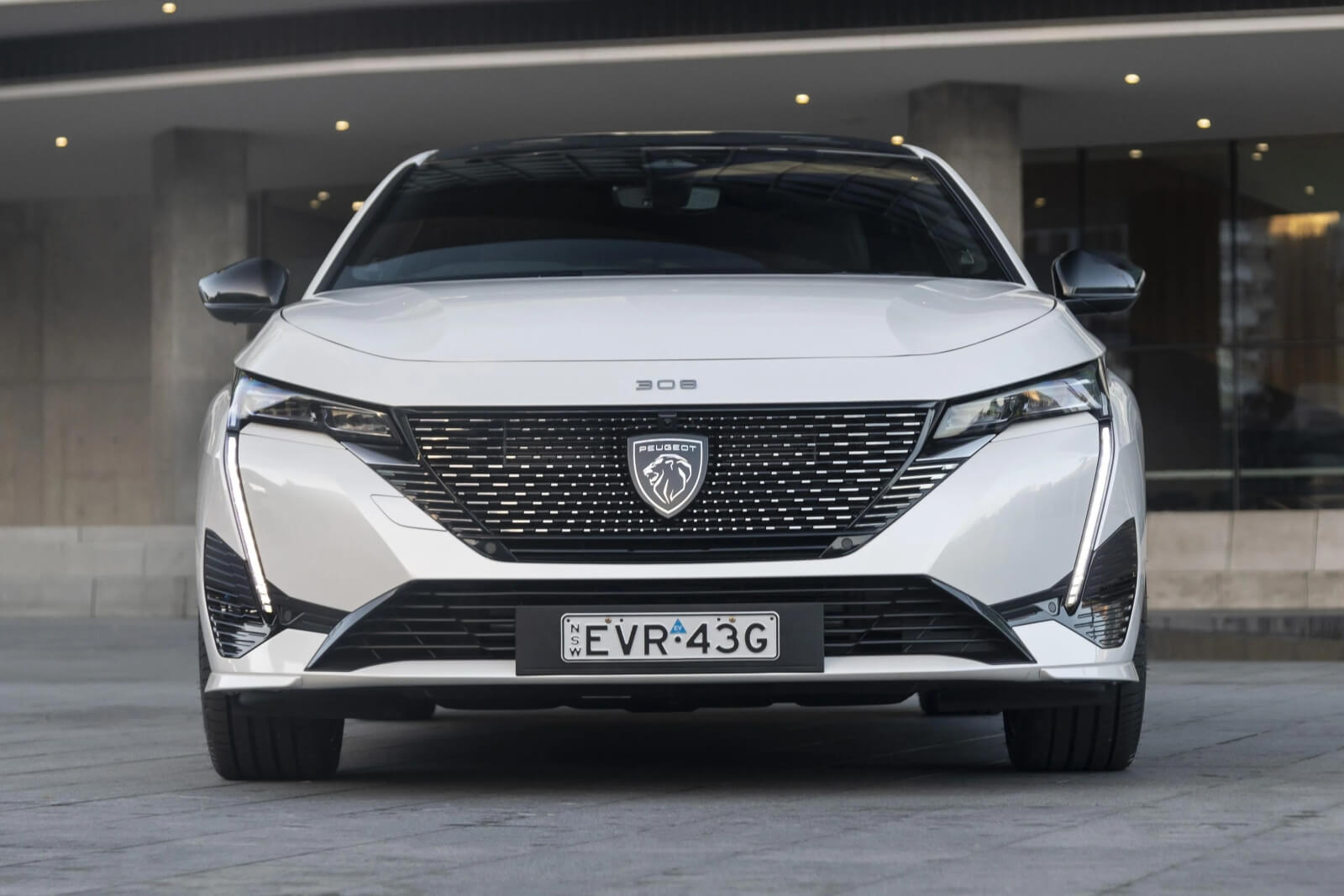
In terms of ride quality, the 308 PHEV performs adequately as a somewhat sporty hatchback – but it doesn’t stand out as exceptional. On varied surfaces during the launch drive, the car didn't exhibit any problematic movements, although the ride was occasionally clunky on uneven road surfaces.
Considering the car's torsion-beam axle at the rear, this isn't surprising, but it can feel a bit disappointing for a vehicle as refined (and pricey) as this 308 PHEV.
Despite its relatively compact size (4365mm long, 1852mm wide), the added weight of the electric technology takes the car over 1.6 tonnes. This mass is offset by the considerable torque from the electric motor, but it’s noticeable when cornering.
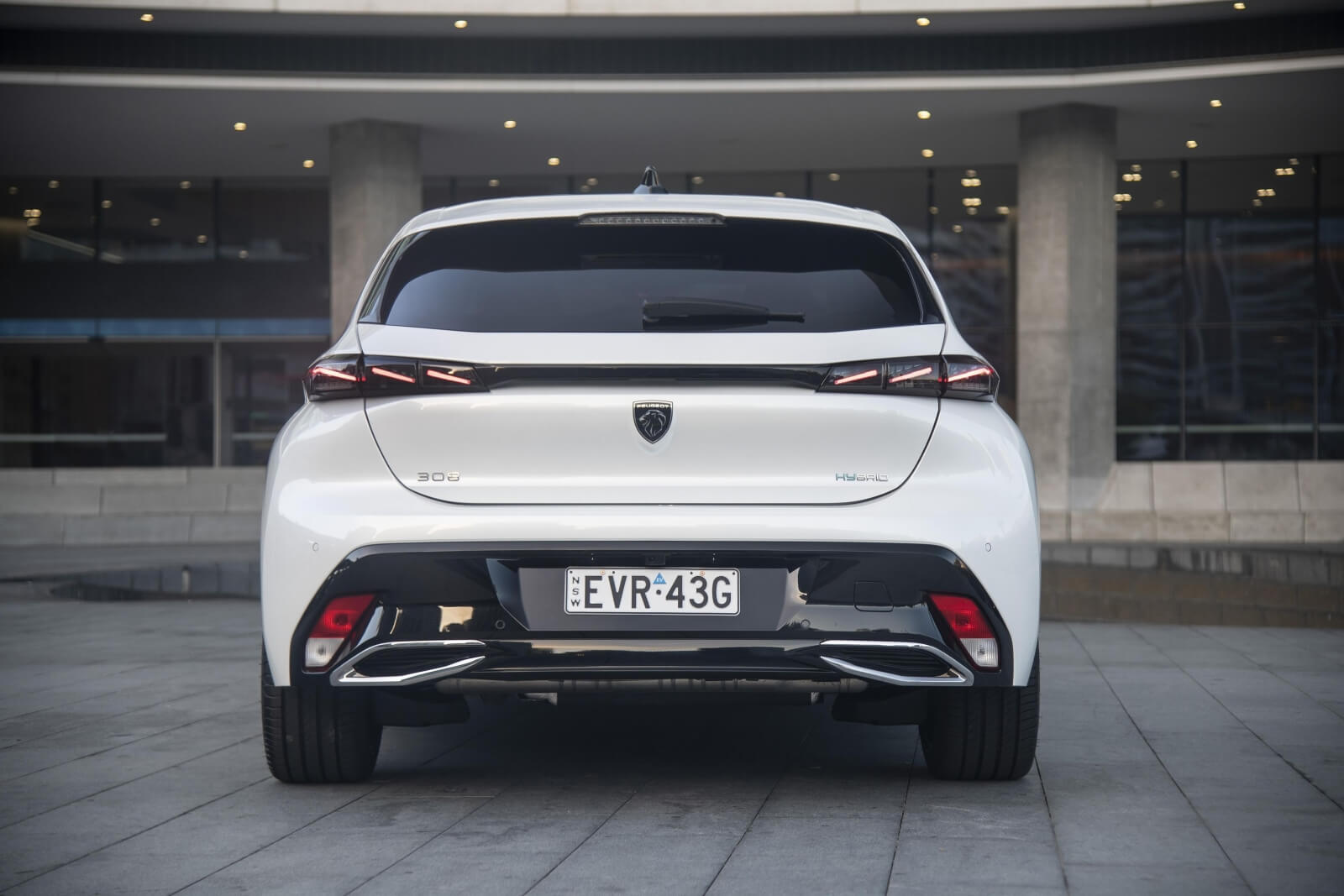
The car remains fun to drive, but drivers who like to push the limits will need to adjust their style. The steering feel is somewhat vague, with limited feedback reaching the driver through the steering column. This is unfortunate, as the small steering wheel should ideally provide a more engaging experience.
Peugeot seems to have prioritized comfort over dynamic driving with the 308 PHEV, which is entirely acceptable considering the target audience. The car is refined, the petrol engine is quiet when it operates, and the vehicle still offers a good measure of driving enjoyment.
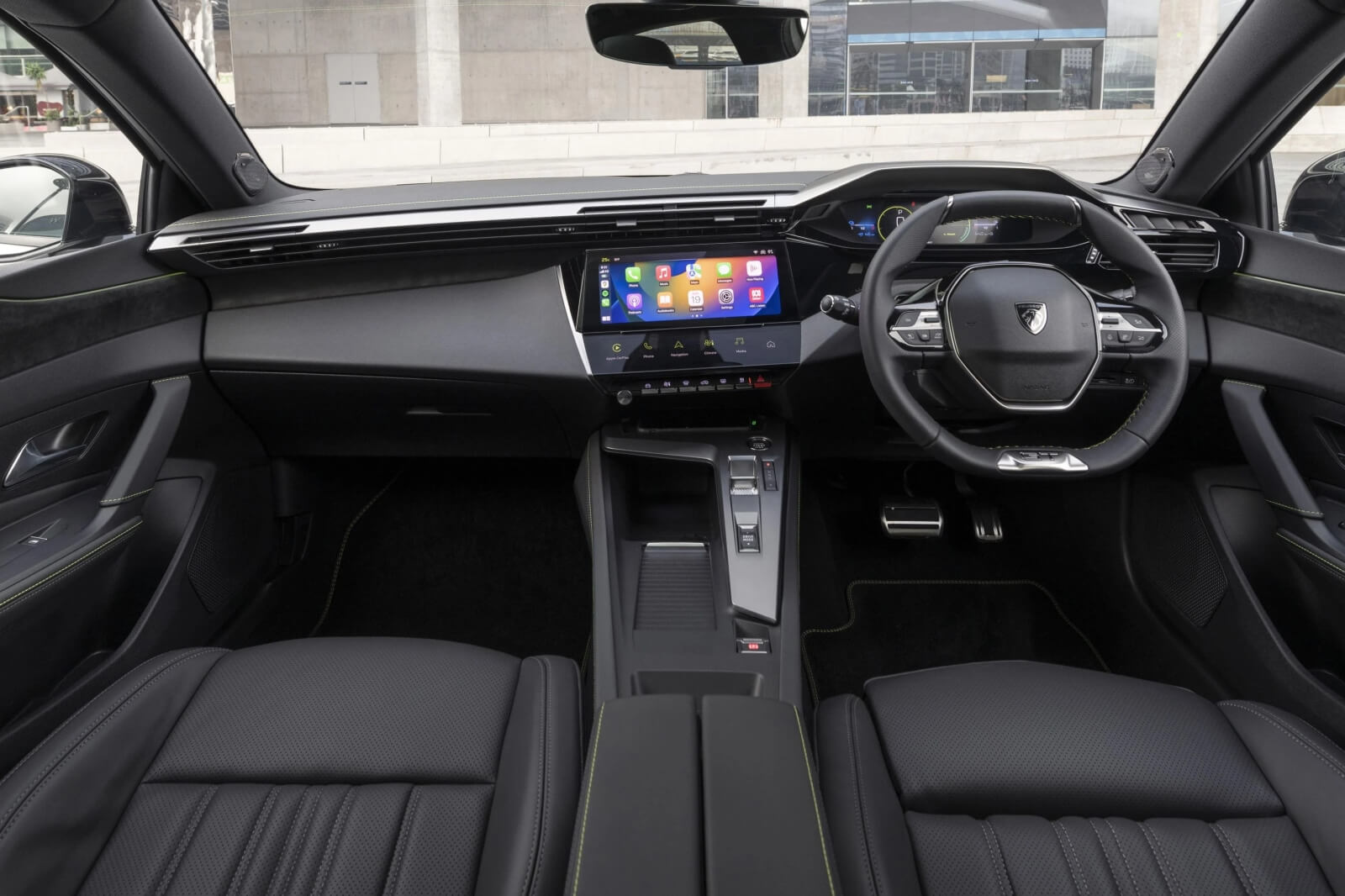
What is the Peugeot 308 PHEV like on the inside?
The Peugeot 308, both in its plug-in hybrid and regular petrol versions, delivers an impressive interior.
The interior design philosophy is distinctly high-quality. From the sculpted dashboard to the seat design, ambient lighting, and thoughtful layout, everything pushes the boundaries of premium aesthetic.
At the center of the 308 PHEV’s infotainment system is a 10-inch touchscreen that's consistent across the 308 range. The screen boasts sharp graphics, a clean and customizable display, and an overall intuitive user experience.
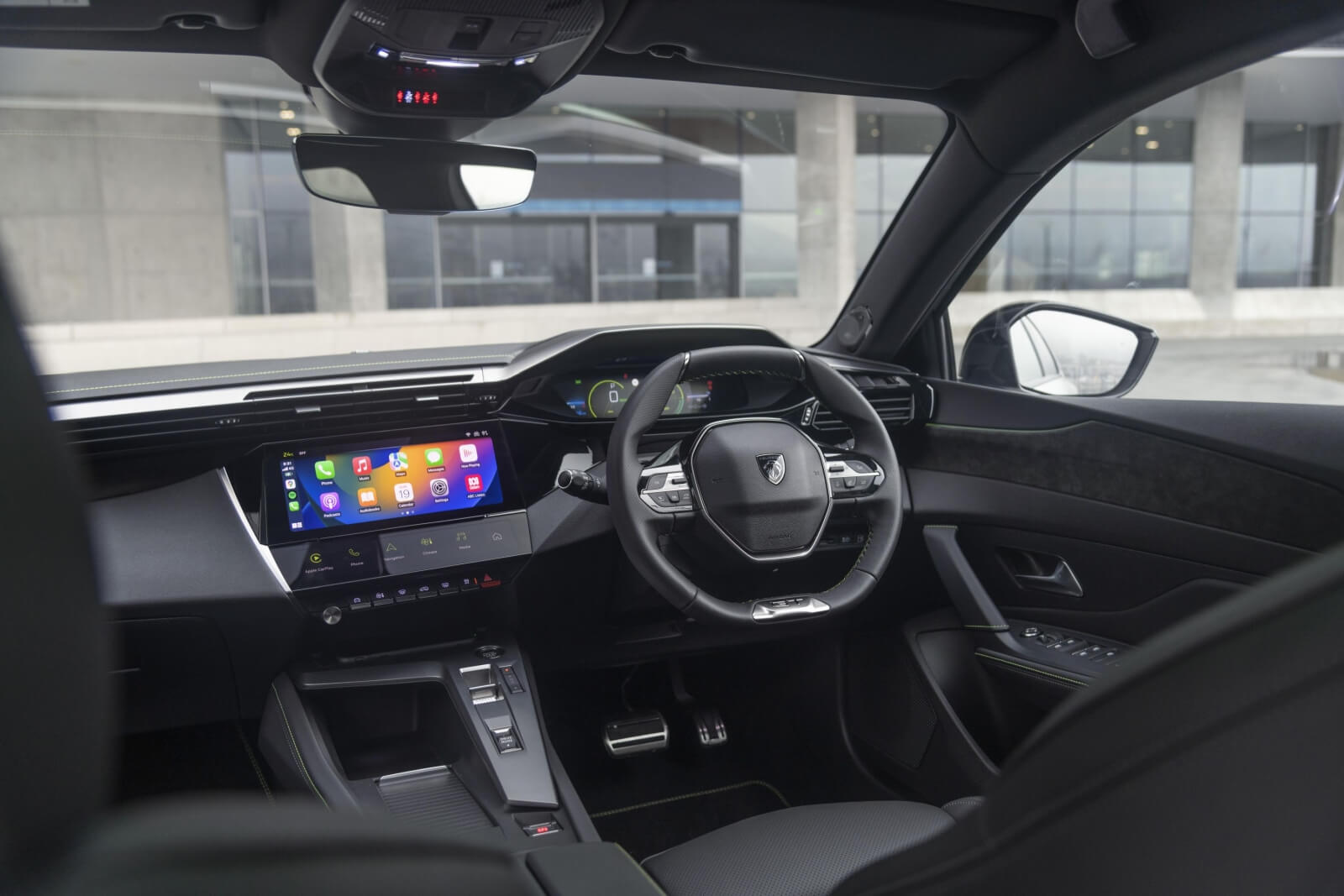
Apple CarPlay and Android Auto, wired and wireless, come as standard, along with satellite navigation and DAB+ radio. A premium 10-speaker Focal audio system ensures good sound quality. The responsive touchscreen allows for easy interaction, and its customizable features allow you to create a home page with your preferred widgets readily accessible.
Climate control shortcut toggles are conveniently located below the screen, providing a more direct way to access the AC functions within the touchscreen. A traditional dial for volume adjustment adds a touch of nostalgia.
Peugeot's connected services offer useful information like fuel pricing, parking availability, and weather updates. These services are included for the first three years but require a subscription afterward.
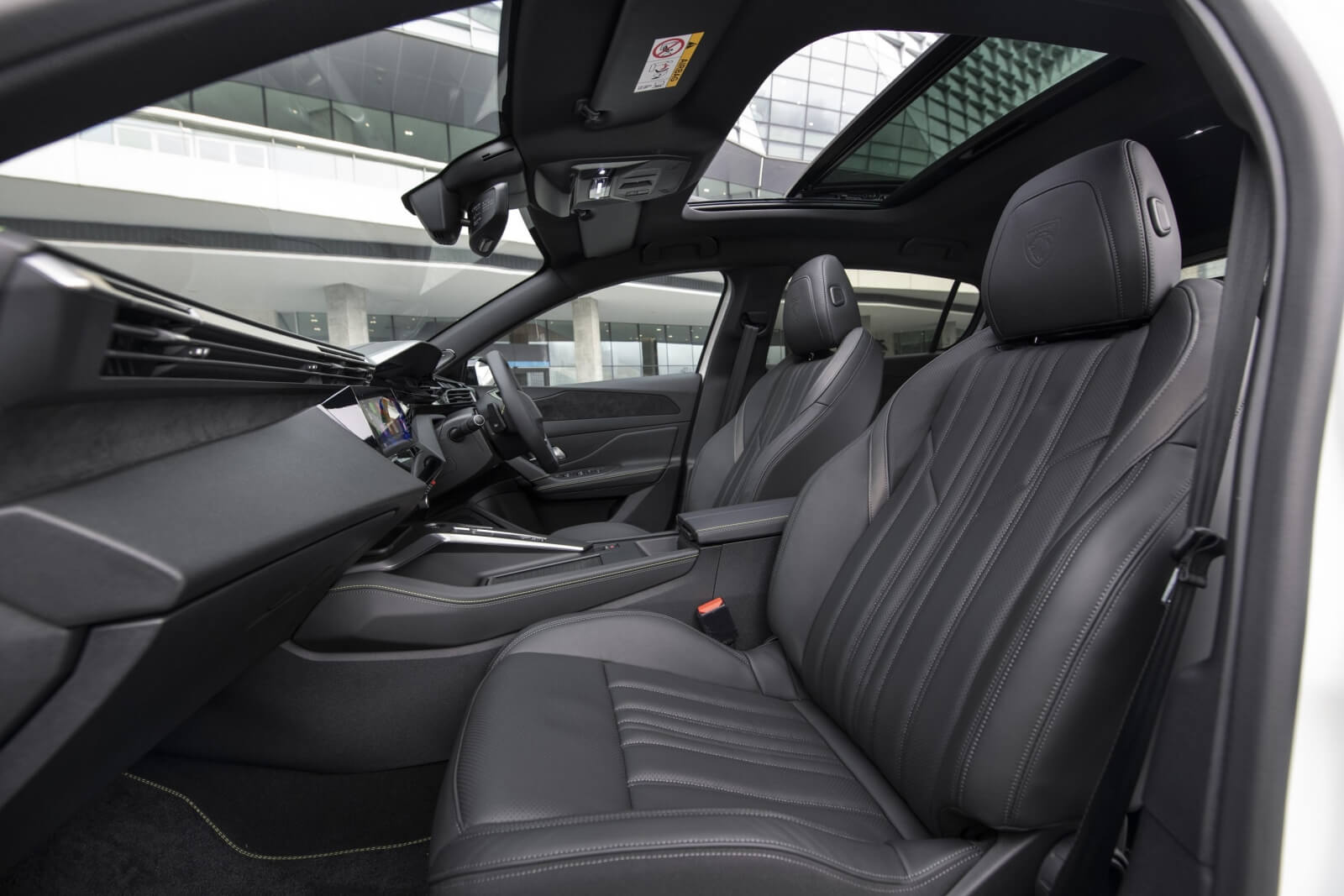
The digital driver display, dubbed i-Cockpit, projects essential driving data in 3D. While this might seem gimmicky, it does enhance the visual appeal without compromising the displayed information.
The car also features a wireless charging pad and four USB-C plugs (two in the front and two in the back) to keep devices charged.
The seats are covered with fine-grain nappa leather which looks and feels premium. They are electrically adjustable, with lumbar support and a massage function, and offer comfort and support.
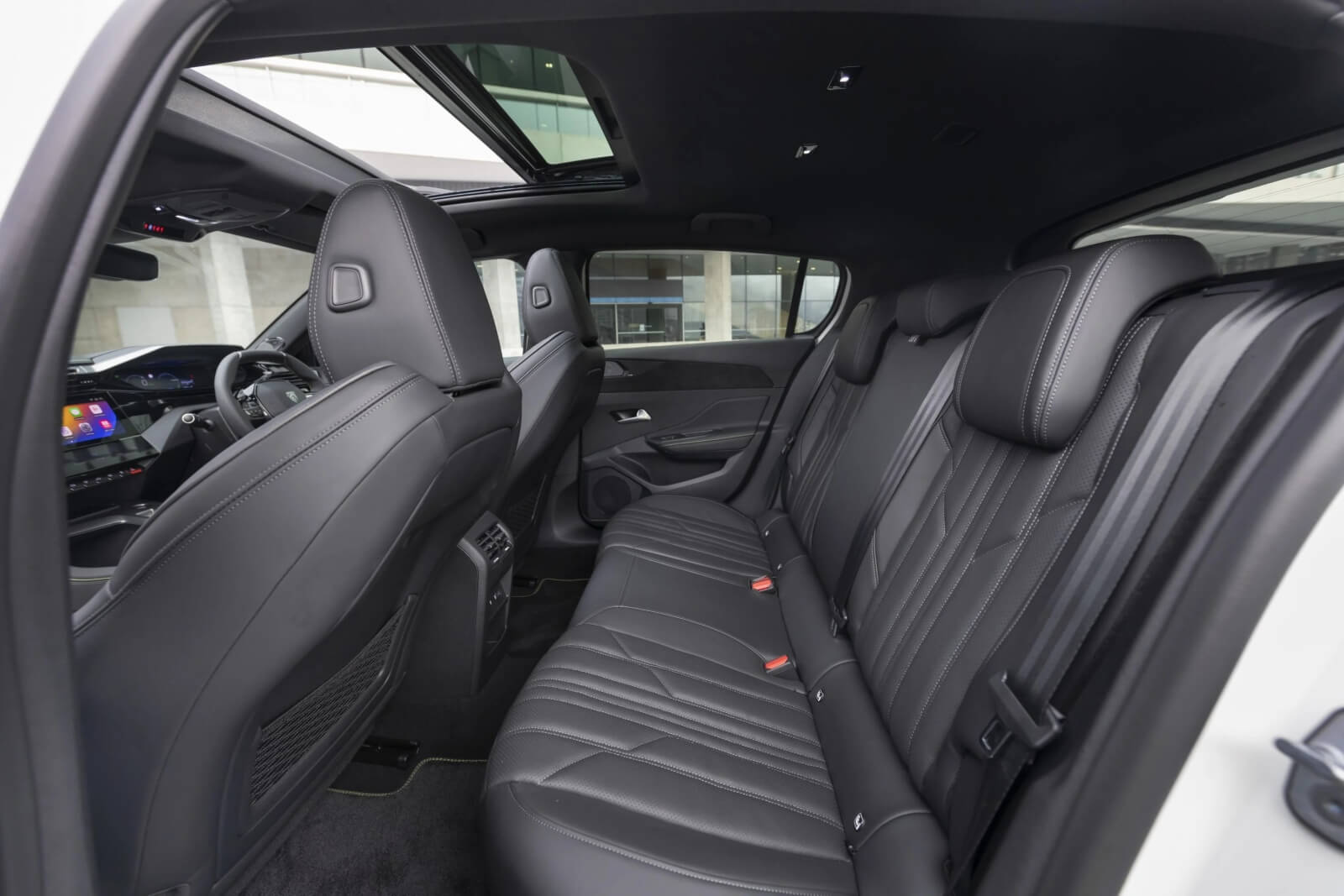
The low-slung driving position is a great feature, and the small, adjustable steering wheel—a Peugeot signature—fits well within this car's dimensions.
There's no shortage of storage options, including a decently-sized central storage bin, large door pockets, a pair of cupholders, and a large cubby in the center console housing a wireless smartphone charging pad.
Space in the second row is more limited. While a 173cm-tall driver would fit comfortably, larger individuals may find it cramped.
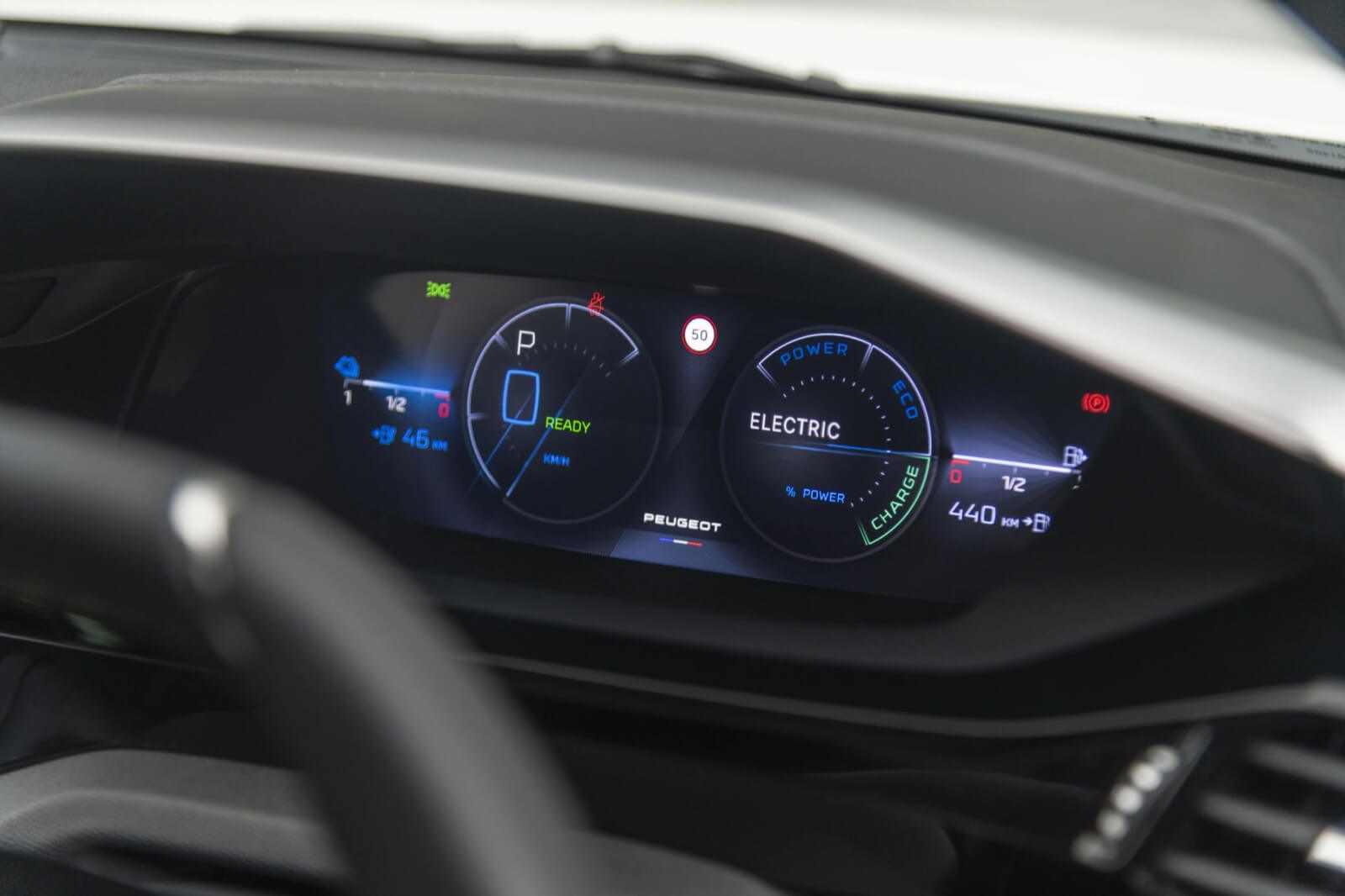
The 12.4kWh battery pack reduces boot capacity compared to the standard 308 hatchback: 361 liters versus 412 liters in the GT Premium. However, folding down the back seats increases this space to 1271 liters.
Unsurprisingly, the plug-in 308 is heavier due to the battery, weighing in at 1611kg compared to the GT Premium's 1258kg.
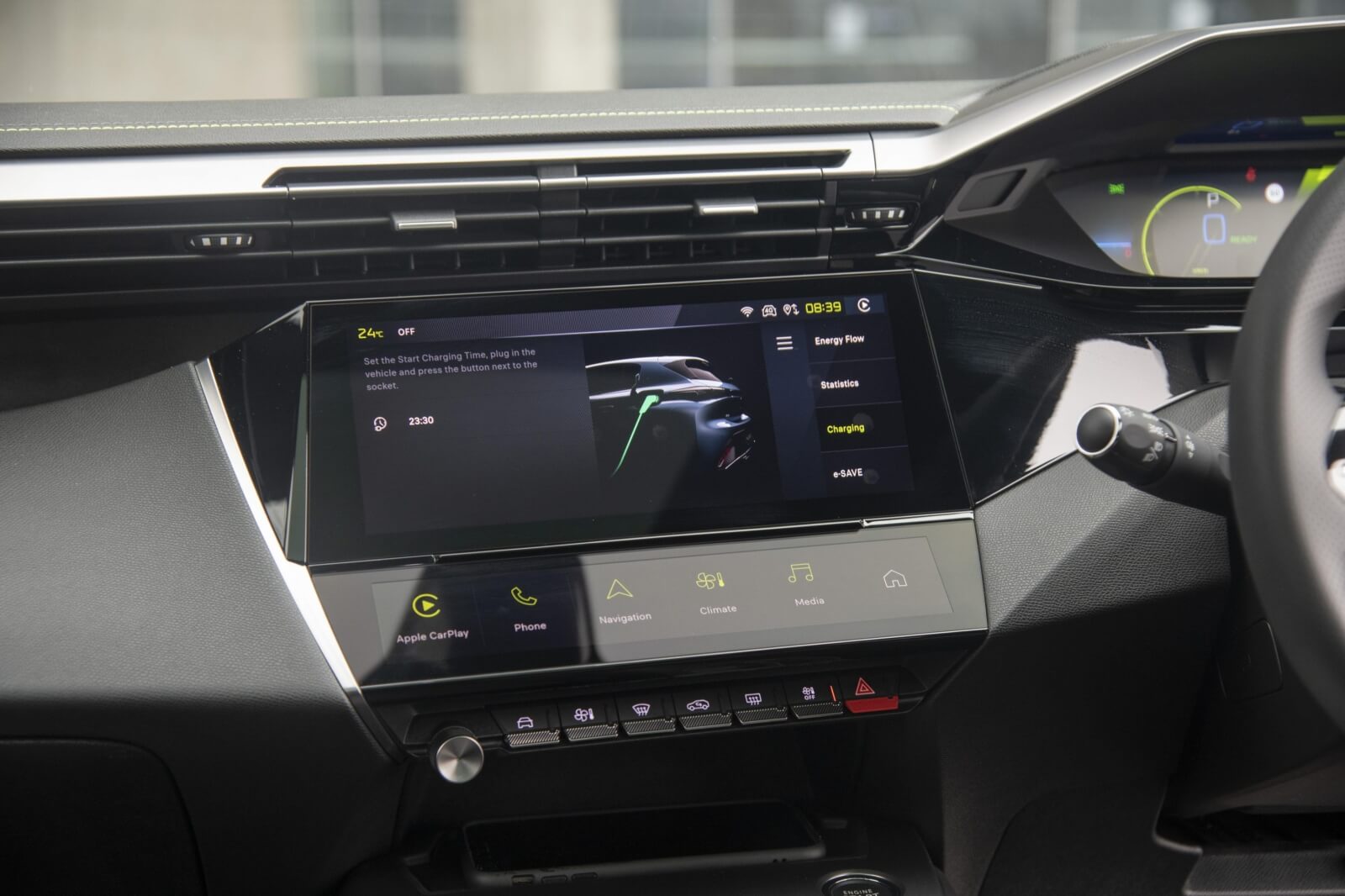
Is the Peugeot 308 PHEV safe?
The 308 carries a four-star ANCAP and Euro NCAP safety rating, falling short mainly due to adult occupant protection in a crash, which at 79 per cent, could be improved. Other scores were 86 per cent for child occupant protection, 68 per cent for vulnerable road user protection, and 82 per cent for safety assist.
Standard safety features include:
6 airbags
Autonomous emergency braking (AEB)
Low-light Pedestrian, Cyclist detection
Auto post-collision braking
Adaptive cruise control incl. stop/go function
Blind-spot monitoring
Rear cross-traffic alert
Driver attention warning
Lane keep assist
Reversing camera
Speed sign recognition, recommendation
Tyre pressure monitoring
308 GT Premium adds:
Active Lane Positioning Assist (centring)
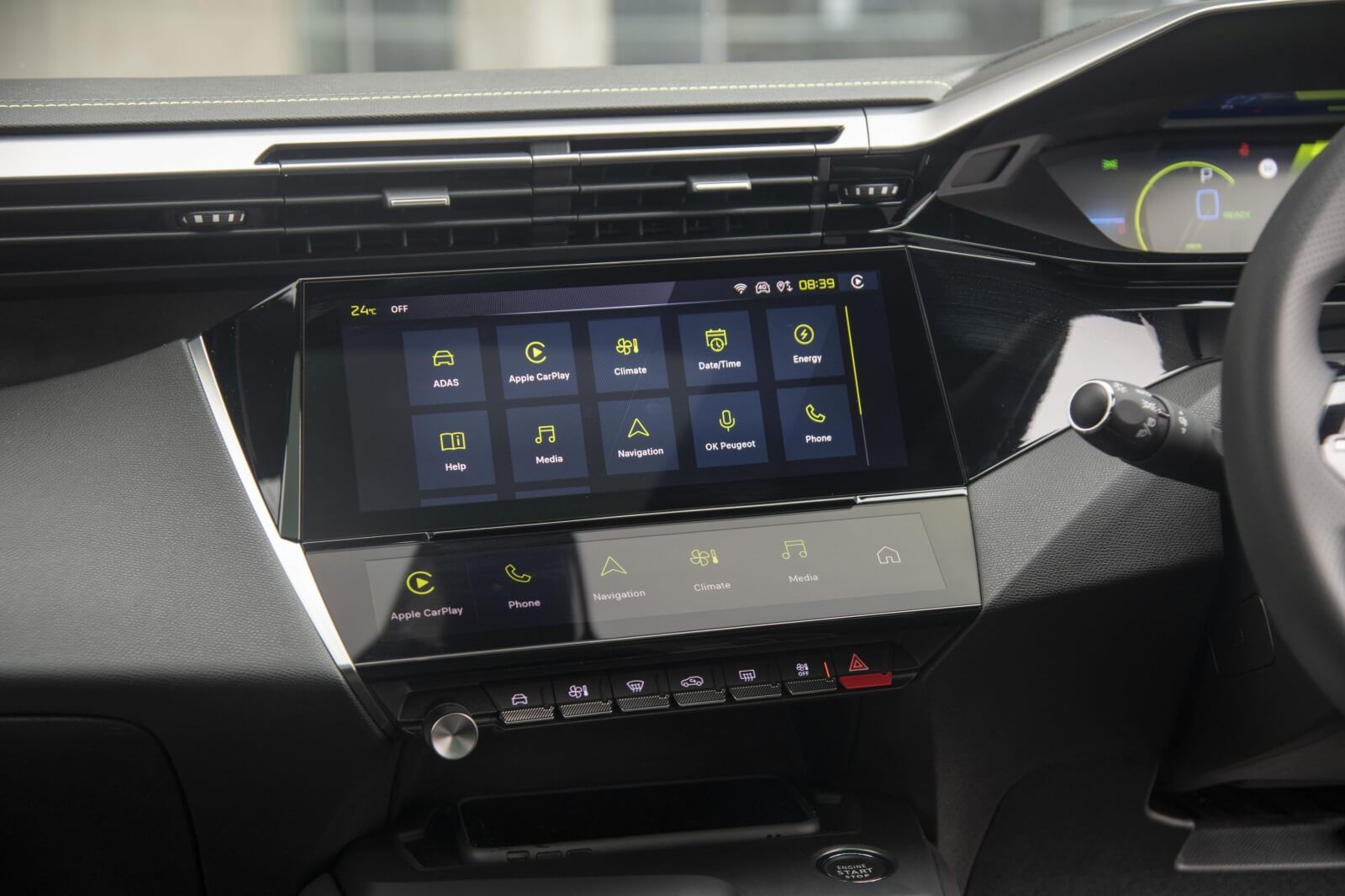
How much does the Peugeot 308 PHEV cost to run?
The Peugeot 308 plug-in hybrid is extremely fuel efficient, with our tested fuel consumption of just 1.2L/100km that included city, backroad, and highway driving. This low figure was achieved with a fully charged battery, which is crucial to maximizing the benefits of plug-in hybrid electric vehicles (PHEVs).
Peugeot’s claim of 1.3L/100km in combined cycle driving aligns well with this result. However, if the battery isn’t charged, fuel consumption will be higher, albeit still likely lower than in the standard non-hybrid model.
The 308 PHEV boasts an electric range of up to 60km as per WLTP testing, which is notable for a car of this size.
In terms of maintenance, Peugeot’s pre-paid service plan for the 308 PHEV costs $2000, covering the vehicle for five years or up to 100,000km. The service intervals are every 20,000km or 12 months.
Peugeot Australia provides a five-year/unlimited kilometer warranty for the 308, and the PHEV also comes with an eight-year/160,000km battery warranty.
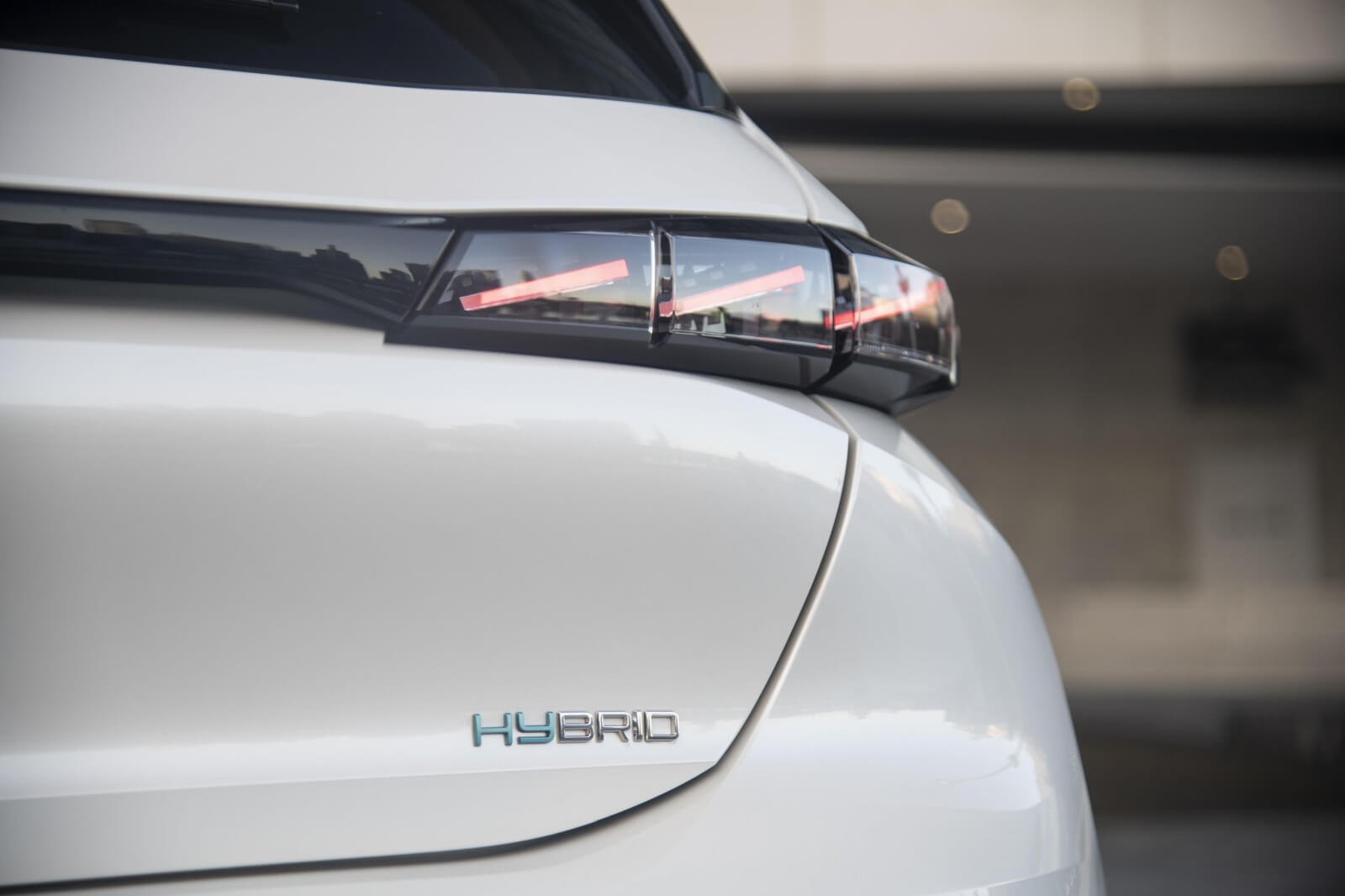
Yeecar’s Take on the Peugeot 308 PHEV
It's important to note that the premium price of the 308 plug-in hybrid over the standard hatchback won’t be recouped through fuel savings. Therefore, potential buyers should view the Peugeot 308 GT Hatch Plug-In Hybrid more as a stylish, eco-friendly vehicle than as a cost-saving investment.
While Peugeot Australia reports strong initial interest in this electrified model, the significant price premium over the non-hybrid 308 range may limit its potential as a volume seller for the brand.
Considering the long-term financial aspect, it would take a considerable amount of time to offset the extra $16,000 that buyers need to pay for this model over the equivalent 308 GT Premium. With a similar interior and around 100 less Newton-metres of torque, the $16,000 price difference may be hard to justify for some buyers.

